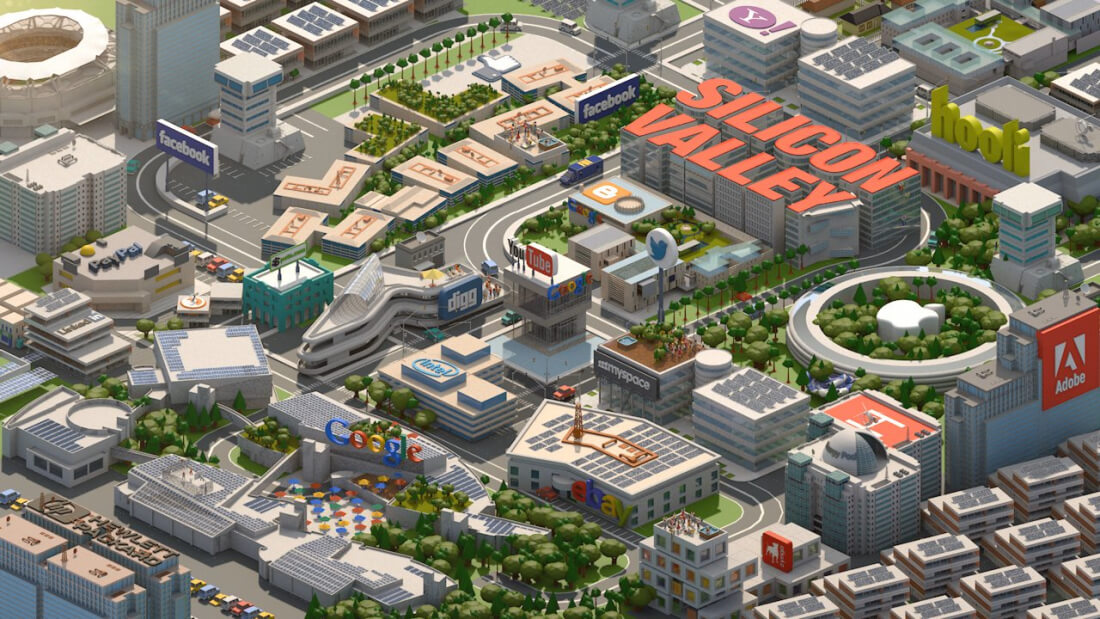Regardless of where you sit on the political spectrum, the maelstrom created by the last US presidential election uncovered a painful reality for the tech industry: a striking gap between it and much of mainstream America.
It's not that Americans of all socioeconomic levels aren't using the output of the tech industry. From smartphones to social media and PCs to online shopping, US citizens are, of course, voracious consumers of all things tech.
The problem is a serious lack of empathy and understanding from people who work within the tech industry to those outside their rarified milieu. To its credit, the tech industry has created enormous amounts of wealth and many high-paying jobs. Very few of those jobs, however, are relevant or available to a large swath of the US population. While I haven't seen any official breakdowns, I'm not aware of many middle income jobs (according to US Census statistics, the average US family income in 2015 was $55,755) in the tech industry. Heck, interns at big tech companies often get paid more than that.
Not surprisingly, that kind of income disparity is bound to create some resentment. Yes, on the one hand, the significantly higher salaries often found in tech jobs do make the goal of working in tech an attractive one for many who aspire to break into the field. But not everyone can (nor wants to) work in tech.
A functioning society, of course, requires people to work across a range of jobs and at a range of income levels. But, it does seem rather disconcerting that an industry that is responsible for driving so much growth across the economy, and that houses the most well-known and well-respected brands in the world, does so little to employ people at mainstream income levels. For all of its focus on social justice and other progressive concerns, the tech industry displays a rather shocking lack of interest in economic inclusivity, which is arguably at the very heart of a just society.
For all of its focus on social justice and other progressive concerns, the tech industry displays a rather shocking lack of interest in economic inclusivity, which is arguably at the very heart of a just society.
Of course, fixing the problem isn't easy. But it does seem like there are a few basic ideas that could help and a lot more "thinking different" that might be worth a try. For one thing, the fact that the tech industry notoriously outsources (or subcontracts) nearly every lower and middle-income job to another firm (all in the name of cost-cutting) needs to be re-examined. From bus drivers, to janitorial and security staff to, yes, manufacturing jobs, it's high time to start making people who do work for a company, employees of that company, with all the rights and benefits that entails. Yes, it could negatively impact the bottom line (though, in the big scheme of things, not by very much), but it would be a tremendously positive step for many. All it takes is some fiscal stamina and a bit of guts.
In addition, the whole mindset of gig-based companies (such as Uber) needs to be reconsidered. Maybe the original intentions for generating a bit of extra income were good, but when millions of people start trying to build their lives around pay-for-hire work, it's time to start making them the middle-income employees they've earned the right to be.
It's also time to start thinking about packaging and selling technology-driven products in entirely new ways. There might be ways to start building entire new sub-economies around, for example, helping farmers grow their crops more efficiently through the use of sensors and other IoT-based technologies. In addition, building products or services that allow the creation of small businesses, such as a tech franchise, which could help other local small businesses with their tech devices and software. For example, someone who could help local bakers, restaurants, florists or shoe repair shops to run their businesses a bit more efficiently, but provides "door-to-door" service.
Part of the problem is that the tech industry has become so obsessed with only offering the latest, most feature-rich products and services through high-income jobs that they have lost sight of the fact that some people only need very simple "older" tech that could be delivered in a more modest manner through comparatively lower-paying jobs.
Rather than planning for a societal collapse, it's time to start mapping out a more positive, productive future that links Silicon Valley to Main Street in a useful, meaningful way.
Bob O'Donnell is the founder and chief analyst of TECHnalysis Research, LLC a technology consulting and market research firm. You can follow him on Twitter @bobodtech. This article was originally published on Tech.pinions.
